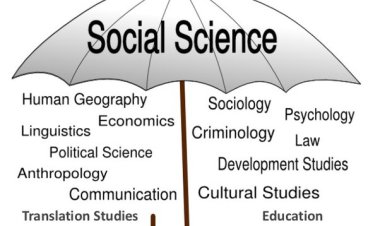Management
Management is the process through which organisations organise and direct the workflow, operations, and people in order to accomplish the goals of the company.

What Is Management? Definition, Functions and Levels
In order to accomplish their commercial objectives, companies and organisations need to have effective management. There are multiple tiers of management in a corporation, each with the responsibility of organising and coordinating the various business functions. If becoming a manager is something that interests you, you should probably educate yourself on the duties and responsibilities of managers. In this article, we cover the definition of management as well as its distinctive qualities, aims, degrees, and functions.
What is management?
Management is the process of planning and organising a company's resources and activities in order to achieve specific goals in the most effective and efficient manner possible. Efficiency in management refers to the completion of tasks correctly and at minimal costs, while effectiveness in management refers to the completion of tasks within specific timelines in order to produce tangible results.
Characteristics of management
The following is a list of some of the fundamental qualities that are associated with management:
Multi-dimensional
The majority of management is responsible for overseeing and supervising the production or service cycle of a firm or organisation. Managers collaborate closely with the members of their team and offer direction to those employees. A manager looks at each person of their team not only as an individual with their own unique requirements, but also as a component of the greater group. In order to be successful, managers must exert influence over their teams to encourage employees to contribute their own capabilities towards the accomplishment of organisational objectives.
Dynamic
Management is a dynamic function that develops and adapts through time in response to changes in its environment, be those changes economic, sociopolitical, or technical in nature. For instance, a paper manufacturer might experience a drop in sales as a direct result of the widespread use of screens and other digital devices. The degree to which the company's management can successfully adjust to the shifting demands of the market will determine whether or not the business can continue to operate.
Intangible
Even though management is not a physical good, the mere presence of good management can transform how an organisation operates. Ideologies, policies, and interpersonal interactions with people make up management. A firm's objective attainment percentages, staff satisfaction levels, and the overall ease with which the organisation can carry out its operations can all be improved with effective management.
Objectives of management
The following are the primary categories of goals that management may have:
Organisational objectives
The interests of all parties involved in the company, including employees, customers, and the government, should be taken into consideration by management. Managers are accountable for both the creation of organisational goals and their successful completion. In most cases, the fundamental objective of an organisation is to accomplish growth by making effective use of all of its resources, including human, material, and financial assets. There are three overarching organisational goals that every corporation should strive to achieve:
- Survival: it must successfully produce sufficient income to cover its operating expenses.
- Profit: Profit is vital for covering unprecedented costs and risks related with running a business. Profit also serves as an incentive for business owners.
- Growth: labour size, and capital investment are some of the metrics that can be used to assess a company's level of growth through time.
Social objectives
To some extent, the management is also responsible for making contributions that are beneficial to the society through the work that they do. There are a variety of approaches that companies can take while doing this. Some may use production practises that are kind to the environment, while others may work to ensure that employees are paid fairly and have access to advancement chances. Larger businesses typically maintain or sponsor efforts that provide fundamental luxuries, such as medical care and educational opportunities. Companies frequently launch CSR (Corporate Social Responsibility) programmes that, depending on the scope of their operations, are beneficial to society in a variety of different ways.
Read Also:What is Data Science?
Personnel objectives
The management of an organisation will typically be the ones to make decisions on the financial incentives, salaries, and perks, as well as the social initiatives, for the staff. The social growth and development of the people is catered to through activities such as company outings and holiday bonuses. These types of activities increase peer recognition and interaction.
Importance of management
The following are some of the primary reasons why management is so important:
- Effective management provides a common direction to individual efforts and steers them towards the achievement of the general goals of an organisation. This contributes to the successful completion of group objectives.
- Boosts efficiency: Increasing an organization's efficiency is one of the most effective ways to cut expenses and boost productivity across the board.
- Establishes a dynamic organisation by assisting workers in adjusting to change and ensuring that the company continues to maintain its position at the forefront of its industry. It is possible that the degree to which an organisation is able to react and adjust to new circumstances may determine whether or not it is successful.
- Effective management encourages team spirit, cooperation, and commitment to accomplishing organisational goals as a group, which in turn assists individual members in accomplishing the personal goals they have set for themselves. This contributes to the overall success of the business.
Levels of management
There are three different tiers of management roles:
1. Top management
The chairman, chief executive officer, chief operating officer, president, and vice-president are the positions that are typically considered to be the most senior executives in a firm. Their job entails bringing together the many aspects of the business and ensuring that all of the departments' endeavours are properly coordinated. They also conduct an analysis of the business environment and the ramifications of it in order to establish goals that will assure the continued existence of the company and the well-being of its stakeholders.
2. Middle management
The middle management is the link between the operational management and the top management, and its members are most often the heads of divisions. The senior managers provide the division and department heads with direction, and the division and department heads serve as leaders to the operational managers. Their role is to comprehend the policies that are formulated by the top management, and then communicate those policies to the divisions and departments that they are responsible for in order to ensure that those divisions and departments adhere to the choices and policies of the organisation.
3. Operational management
Direct oversight of the efforts put forth by the workforce is performed by supervisors, section leads, or forepersons. They are in charge of quality control and making ensuring that the work is completed within the allotted time. Plans that outline the supervisors' authority and responsibilities are devised by the top management and then put into action.
Functions of management
Management's role in an organisation is to serve as a unifying force that directs the diverse contributions of its members towards the accomplishment of a shared objective. The following is a list of some of the functions of management:
Planning
Creating a schedule of the activities that need to be carried out in order to attain a particular objective is an essential part of the planning process. Planning is carried out by managers. The planning process ought to be carried out in a methodical manner in order to prevent the squandering of both time and resources. Confusion, risk, wasted resources, and uncertainty are all reduced when there is a precise plan of action.
For instance, the upper management of a small company may decide to establish a lofty sales quota for the upcoming quarter in order to make up for the losses incurred during the preceding one. In order to broaden the scope of their operations, the founder of a start-up business may have the intention of formally pursuing associations with both the government and other significant institutions. There is a possibility that the leaders of local digital marketing companies have plans to develop a market for their goods and services on a global scale. A company that provides IT services can choose to revise its work policies in order to permit employees to do some of their duties from home.
Prioritise organisation
The development of a mutually beneficial partnership among the company's human, monetary, and material resources is one of the primary goals of the organising process. The plan of action that satisfies all of the requirements for success can be derived from good organisation. Organising requires determining and categorising different aspects of a business's operations, as well as delegating and coordinating tasks.
For instance, the senior managers might distribute certain amounts of money or resources to the many branches. The managers of the various departments within the branch are then responsible for distributing monies to those departments in accordance with the operating requirements of those departments. The heads of the departments are responsible for monitoring the day-to-day use of the monies.
Improve staffing
The process of staffing an organisation entails recruiting new members and putting together a team. The process that businesses go through to hire new employees is frequently time-consuming and laborious. The company's management will determine the many professional responsibilities that are available inside the organisation, as well as the competencies and characteristics necessary to fulfil these tasks successfully. After that, the management uses several recruitment techniques to choose staff members to fill such responsibilities. Candidates go through training after being selected, and then they join the company's staff. As part of the staffing process, managers are also responsible for doling out performance reviews and promotions.
A company that specialises in digital marketing, for instance, might make the decision to spread its operations to other locations around the nation. After that, the upper management can make the choice to hire a manager, along with five marketing staff members, four visual designers, two accounting staff members, a human resource specialist, and a manager for each location. They may also choose to contract out work relating to information technology, maintenance, and security to independent contractors. After completing two months of training and having one year of experience working for the company, the organisation's staffing rules may additionally advise that one member of the marketing staff and one visual designer should move up to the job of department lead.
Provide direction
The primary responsibilities of a manager include of people they are responsible for supervising, encouraging, and directing. The act of directing entails taking the necessary actions to set the work in motion and maintain productivity in order to accomplish the objectives of the firm. In order to steer the team towards the successful completion of organisational goals, this calls for exceptional leadership, communication, and interpersonal abilities.
For instance, the policies that are created by middle management are frequently dependent on the directives that they receive from the top management. The management of the company's operations on a day-to-day basis is the primary emphasis of operational managers.
Monitor quality
The operation of a business depends on adhering to certain predetermined performance standards. A manager is responsible for ensuring that the overall output of the workers satisfies the quantity and quality standards established by the organisation. The control that is implemented at each level helps to eliminate any general divergence from the quality standards that have been specified.
To provide one example, managers at a fast-food chain frequently engage in the practise of micromanaging cashiers, cooks, delivery drivers, and waiters in order to ensure that the food and service at each of their locations meets the required quality standards. These quality standards are typically prescribed by upper management, and they tend to develop over the course of time.













